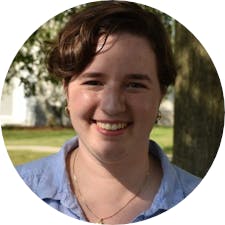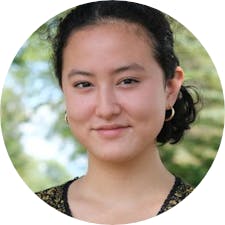The college canceled its spring abroad program in Japan on Friday, marking the last of the 16 schools abroad to make the decision to close. While the schools typically generate over a million dollars in surplus, the college is projecting a $3.5–3.7 million dollar net loss from the schools abroad alone in the Fiscal Year 2021. This loss comprises more than one-third of the latest $10.2 million deficit projection, according to Executive Vice President for Finance and Administration David Provost.
In pre-pandemic years, the Middlebury schools abroad program has typically enrolled 700 students annually, accounting for $10–12 million in tuition revenue. Operating costs have amounted to about $9.5–10 million each year, and the collective Middlebury schools abroad have routinely generated an annual surplus of $1 million, according to Dean of International Programs Carlos Vélez.
Though the schools abroad are closed for in-person instruction, Provost estimates that they will generate roughly $1 million in total revenue through FY2021 in tuition from online classes and internships offered through the schools.
While not having to host students cut operating costs in half, Middlebury’s commitment to wage continuity for all of its employees means the college will still spend an estimated $5.2 million on schools abroad in FY2021, according to Provost.
Middlebury schools abroad directly employs 47 full-time staff members across its 16 schools, all of whom are included under Middlebury’s commitment to maintain wage continuity through June 30. They primarily serve in administrative roles as directors, assistant directors, deans and housing and program coordinators, Vélez said in an email to The Campus.
In countries that offer them, the schools have availed themselves of government-subsidized furlough programs to cut costs while still maintaining wage continuity, according to Provost.
The rest of the schools abroad staff are primarily contracted on a short-term basis according to program enrollment. These positions, which include course instructors, orientation assistants and program tutors, among others, do not fall under the umbrella of the college’s wage continuity pledge. As a result, schools have been able to cut costs by not hiring anyone to fill those positions, according to Vélez.
The remaining skeleton staff of the schools continue to work hard despite closures. Staff spent much of the fall semester trying to plan and make possible school reopenings in the spring. Middlebury had hoped to run at least 75% of the programs but ultimately decided to keep them shuttered. The staff will resume planning in anticipation of restarting their programs in the fall of 2021.
In the meantime, several schools are offering online classes, including seven courses that were available to Middlebury undergraduates in the fall, as well as facilitating and coordinating remote internships. Vélez said 83 students — including some graduate students — enrolled in online schools abroad offerings this fall, and the schools plan to hold more than 30 remote courses over J-Term and spring. Some schools have also hosted activities for students within their respective language departments, keeping the remaining staff busy, according to Vélez.
Vélez said Middlebury fully intends to reopen the majority of the schools abroad in the fall of 2021. The college considers a number of factors before deciding to open a school for in-person instruction, including the state of the pandemic in host countries, travel restrictions and availability of medical care and appropriate housing options.
“The safety of the students in our schools is our central consideration in making these decisions, followed then by our ability to maintain the core academic mission of the programs,” Vélez wrote in an email to The Campus.
However, even if some schools cannot reopen for the foreseeable future, the college has no plans to make any closures permanent. “There are no discussions right now about backing away from study abroad. There are no discussions about closing programs,” Provost said.
Although the Middlebury schools abroad as a whole are profitable, some of the individual schools do not turn a profit, even during pre-pandemic times. Provost and Vélez emphasized that the schools are considered a collective regarding finances, so Middlebury does not consider the profitability of any individual school.
“This overall financial picture allows us to place the importance of offering options in specific languages and of having a presence in certain regions of the world ahead of revenue considerations in making decisions about each school,” Vélez said.
The college remains committed to ensuring the quality of a Middlebury education, including the opportunity to study abroad, despite the financial difficulties posed by the pandemic, according to Provost.
“One of the key pillars of [what makes Middlebury, Middlebury] is our distinctive global network, and study abroad plays a critical component of that,” Provost said. “Our thinking this year has been, we can manage through this once-in-a-century pandemic. But it will not change our commitment, or the importance of a Middlebury education, inclusive of that global network.”

Sophia McDermott-Hughes ’23.5 (they/them) is an editor at large.
They previously served as a news editor and senior news writer.
McDermott-Hughes is a joint Arabic and anthropology and Arabic major.
Over the summer, they worked as a general assignment reporter at Morocco World News, the main English-language paper in Morocco.
In the summer of 2021 they reported for statewide digital newspaper VTDigger, focusing on issues relating to migrant workers and immigration.
In 2018 and 2019, McDermott-Hughes worked as a reporter on the Since Parkland Project, a partnership with the Trace and the Miami Herald, which chronicled the lives of the more than 1,200 children killed by gun violence in the United States in the year since the Marjory Stoneman Douglas High School shooting in Florida.

Abigail Chang ’23 (she/her) is the Editor in Chief.
She previously served as a managing editor, Senior News Editor, News Editor and co-host of The Campus' weekly news radio show.
Chang is majoring in English and minoring in linguistics. She is a member of the Media Portrayals of Minorities Project, a Middlebury lab that uses computer-assisted and human coding techniques to analyze bulk newspaper data.
Throughout last year, Chang worked on source diversity and content audits for different media properties as an intern for Impact Architects LLC. Chang spent summer 2021 in Vermont, working as a general assignment reporter for statewide digital newspaper VTDigger. Chang is also a member of the Middlebury Paradiddles, an a cappella group.




